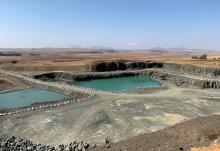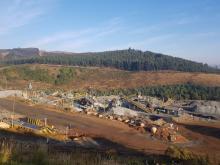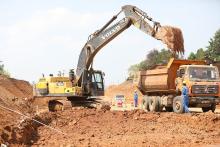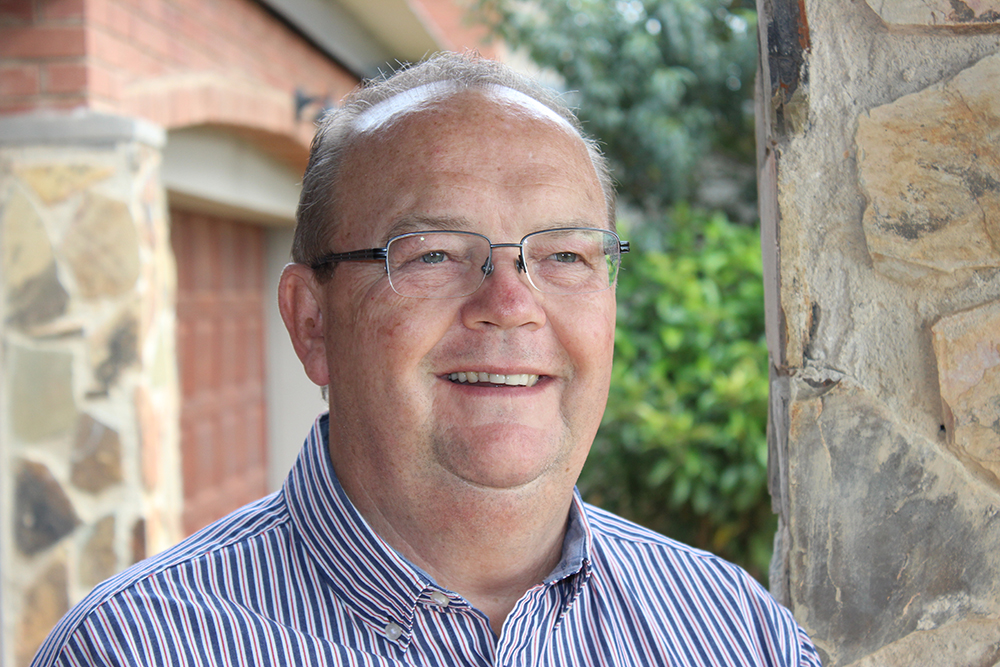
Armed with a Masters in Labour Law and Industrial Relations, Nico Pienaar spent most of the early years of his career in industrial relations. Notably, he was the first industrial relations advisor to the South African building industry through BIFSA (now Master Builders South Africa), a leading national representative body in the building and construction industry.
He eventually became a trade unionist, and worked for various institutions, including the then Building Industry Society, and eventually the United Building Society before it became a bank, which is today known as ABSA in South Africa.
Some of the biggest lessons he learnt during his industrial relations days were that “it’s always essential to stick to the rules, be fair and consistent”. These are some of the values he has lived by and championed for the past 21 years he has been at the helm of Aspasa, an industry association that initially looked after the interests of sand and aggregates producers in southern Africa, before it broadened its scope recently to become an all-inclusive surface mining association.
A few years after taking over the reins at Aspasa in 1999, Pienaar was also tasked with leading the Southern African Readymix Association (Sarma). He ran the two associations for some 12 years before Sarma was moved out of the Aspasa office to become part of the consolidated concrete industry bodies in 2017. Two years later, Sarma was closed at the end of 2019, “a very sad day” in Pienaar’s life, as he had, for over a decade, put a great deal of effort in building this readymix association. That Pienaar is passionate about what he does is very apparent – and many in the quarrying industry in southern Africa would agree. He has been the force behind Aspasa for two decades now, and has, over the years, revolutionised the association, which has since become a recognised voice of the industry.
For Pienaar, an association has to be of great value to its faithful members. This, he says, is a lesson he learnt during his trade union days. “You have to offer value and be of great help to members, who obviously look up to you as an association. An industry association has to be aware of the issues afflicting its members, something Aspasa has excelled in over the years.”
To meet the ever-changing needs of the industry, Aspasa has in recent years broadened its scope and also extended the range of services it offers to help members comply with the different legislations that apply to the industry.
In 2017, the association expanded its reach from its traditional sand and aggregates focus, to cover several other areas of the surface mining industry, including salt, dimension stone and clay brick. Affiliation now includes mobile crushing contractors, formal quarries, rubble crushing, ash, coal and borrow pit subsectors.
Also included are associate memberships for organisations such as the National Occupational Safety Association and heavy machinery manufacturers. These are all required to be legally compliant with legislation such as the Mine Health and Safety Act (MHSA), environmental legislation and the Water Act.
As the membership scope has been extended, so have been the services offered by the association. Aspasa’s service offering covers legal compliance; local, international and government liaison; health and safety audits and training; environmental audit and training; technical and transport support; as well as training and education.
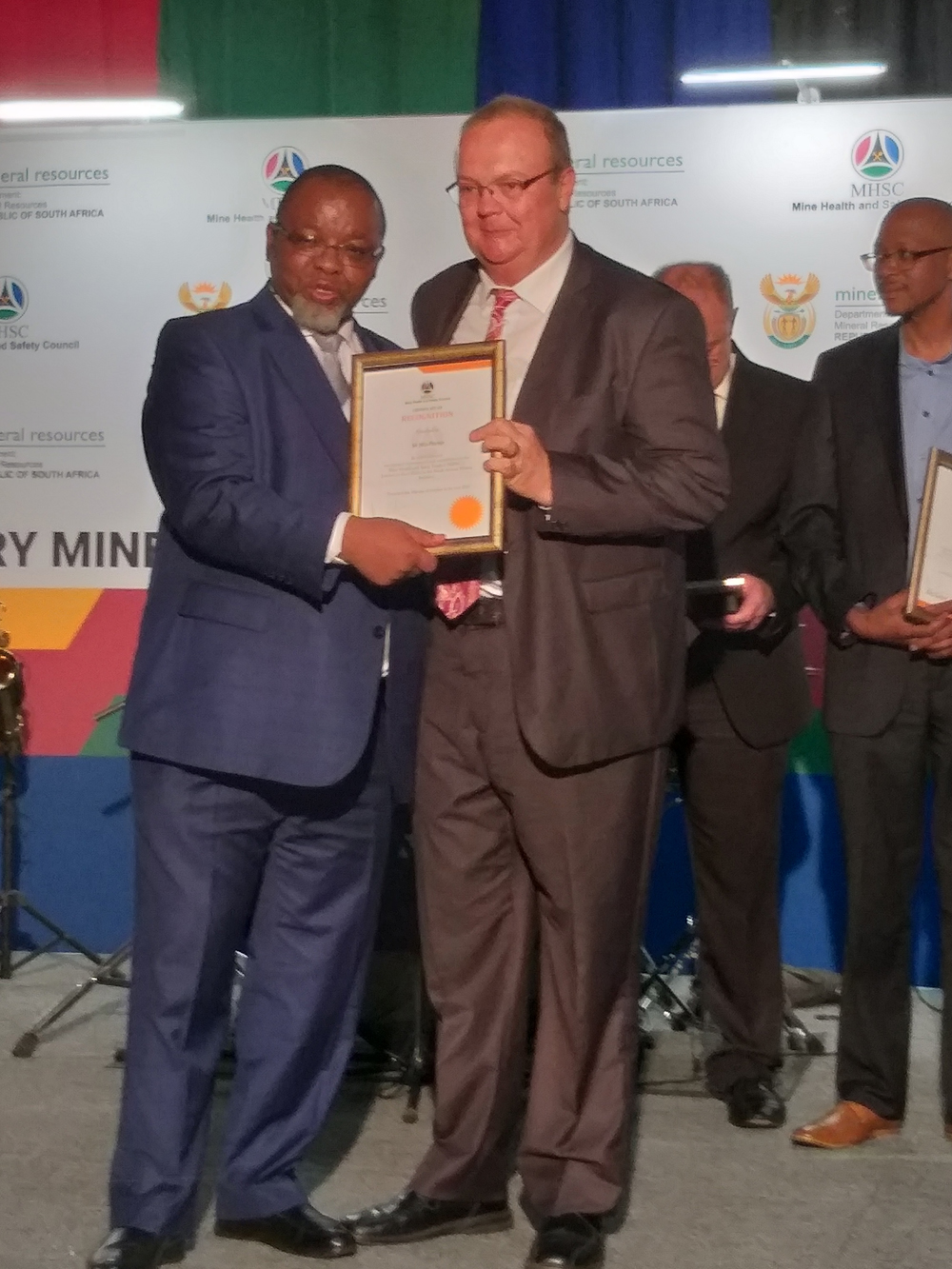
In terms of legal compliance, the focus has traditionally been on health and safety and environmental practices. In recent months, the association has also added an array of compliance audits, including the Explosives/Blasting Compliance audit, the Quality/Technical Compliance Audit, Mining Charter Audit and a focus on Social Compliance and Community Affairs.
“Aspasa compliance audits assist operations, line managers, top management, boards and shareholders to ensure that operating standards are met in every aspect of the operation. The personal competencies of those operating the business are also addressed by a host of training topics that are covered by the association, while compliance audits point out issues that need attention,” he says.
Flagship audits within Aspasa have always been the health and safety audit, known as the ISHE Audit, and the environmental audit, named About Face. The ISHE Audit has ushered in new health and safety standards in the industry. Aspasa members have reported no fatalities across their operations for the fifth year running – which is testimony to the level of health and safety excellence at member operations.
Explaining the key drivers behind the success of the ISHE Audit, Pienaar says the objective is two-fold. While it is a compliance audit protocol for legal requirements, own policies, standards, procedures and guidelines, as well as industry-leading practices, it is also an educational process where information is shared during audits on what is going on in the industry, how other operations are implementing required legislation and regulations to ensure high standards in health and safety performance.
The ISHE audit generally covers MHSA regulations and Aspasa has recently received calls to expand it to cover the Occupational Health and Safety Act (OHSA). “We have, therefore, developed an additional audit protocol that will allow Aspasa to audit other functions that are associated with mining operations, such as readymix, bitumen, brick plants and workshops,” says Pienaar.
The environmental stewardship of Aspasa members has improved significantly since the inception of the About Face programme in 1994. This has guided and aided most members to elevate themselves from mediocre environmental performances to being among the best opencast operations in the world.
Pienaar says environmental compliance – from a community and regulator perspective – is also becoming a big issue in the industry. “The good housekeeping type of audits previously done have been changed, with specific focus now on being legally compliant by assisting mine managers to understand their roles and being not so dependent on consultants who often don’t grasp certain important issues themselves,” says Pienaar.
One of the newest service offerings from Aspasa is the Explosives/Blasting compliance audit. With blasting regulations changing, and communities being more aware of their rights, even when not often justified in their complaints, Aspasa has gone into an agreement with a blasting expert to conduct one-day audits to ensure compliance.
“We have decided to offer Blasting Audits to members because the mining industry faces numerous practical legal challenges since the MHSA’s new explosives regulations came into effect on 14 December 2018. There have been various demands made by affected communities and the regulator, the Department of Mineral Resources and Energy (DMRE) officials,” says Pienaar.
Increasing requirement for certified quality aggregates has also driven Aspasa to introduce its own guidelines and auditing systems to ensure testing of aggregates and crushed granular materials is done in accordance with South African National Standards (SANS) 3001 AG and GR series test methods.
In future, quarries belonging to Aspasa will have an option to participate in an annual audit designed to measure compliance of testing facilities, including their apparatus calibration and personnel competence against an abridged ISO 17025 format, to assist in ensuring the correct classification of products.
“Over time, as their systems improve, they can opt to obtain accreditation through South African National Accreditation System (SANAS) for ISO/IEC 17025 – general requirements for the competence of testing and calibration laboratories,” says Pienaar.
Following the publication of the Mining Charter’s Implementation Guidelines and Amendments in December 2018, Aspasa has now extended its service to members with a Mining Charter Audit.
South Africa’s new Mining Charter was developed to boost sustainable growth, enforce procurement of local goods and to further support broad-based, meaningful Black Economic Empowerment of the South African mining and minerals industry. Pienaar cautions that it’s important for all South African mines to work strictly within the confines of the charter.
Pienaar says the biggest risk facing any operator is to be suspended because of non-compliance. “With the Mining Charter Audit, Aspasa members will be in a position to assess their compliance status and take rectifying steps. This will allow mines to be a step ahead when the DMRE does its compliance inspections – the outcome of which can be punitive, costly and time-consuming.”
The business approach to running Aspasa is one of the reasons why the association has succeeded over the years. “I see Aspasa as a business, my own business,” he says. “I, therefore, have a great interest in all issues that affect the association’s members.”
For example, in the past two years, Aspasa has been tackling some new issues that have traditionally been beyond its jurisdiction. “We have also extended our scope to help members with security issues at mines, including attacks and theft. We have also started a community and social compliance group,” he says.
Pienaar’s efforts haven’t gone unnoticed. In 2018, he was honoured with two separate awards for his contributions to the industry. He was given a special award by South Africa’s Minister of Mineral Resources in recognition of his valuable and ongoing contribution to the Mine Health and Safety Council as director of Aspasa. Pienaar also received a CEO Global Titans Building Nations Award, which recognises unsung heroes of the African business landscape.


